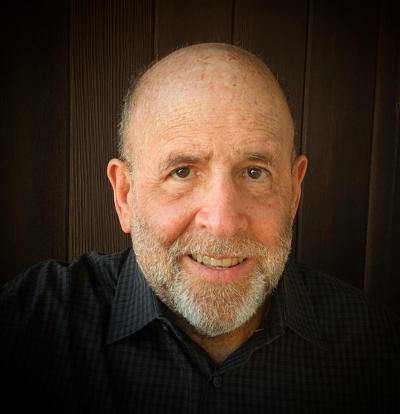
Andrew Malekoff
Texas parents want 50 books banned from school libraries. Some of the parents took official steps to challenge the suitability of these books.
One book in question is “When Wilma Rudolph Played Basketball,” by Mark Weakland. The book includes references to the racism that Olympian Wilma Rudolph encountered when she was a child in Tennessee in the 1940s.
What’s new is old.
In his biography of civil rights icon John Lewis, “The Truth is Marching On,” Jon Meacham reports that in 1960, a book featuring black rabbits and white rabbits was banned in Birmingham, Ala.
Also on the Texas parents’ list is the graphic novel “White Bird,” by R.J. Palacio, about a Jewish girl living in France after Nazis seized power.
One parent complained that the book must be banned because it’s “biased” and could lead to the “skewing of a young child’s mind.”
I decided to read “White Bird,” to see for myself.
The book is 220 pages, divided into five chapters with a prologue and epilogue, and an informative author’s note and glossary. I finished reading the book in an hour.
The book begins with a facetime conversation between a grandson and his grandmother. He asks her if he can interview her for a school assignment. She agrees and then hesitates when he says he wants to ask her about when she was a little girl during World War II. Nevertheless, she proceeds, telling her grandson, “Those were dark times, but what stays with me is not the darkness but the light.”
She recounts growing up in the 1930s in the village of Aubervilliers-aux-Bois, France. She is enjoying her life – school, friends and family, until about 1940, when France surrenders to Germany and divides France into an Occupied Zone and a Free Zone.
“In those days,” she says, “I was happy and carefree as a bird. But the world was changing.”
Although she lived in the Free Zone with her parents, there are mounting restrictions, as well as growing signs of antisemitism. School was Sara’s respite. She loved to draw, especially birds in flight. Her sketchbook was her constant companion.
Sara befriends Julien, a boy in her class with polio, whom she previously ignored. Some of the more antagonistic kids, and especially class bully Vincent, call Julien “Torteau,” the French word for crab, for the way he hunches over on his crutches.
Sara is separated from her parents and Julien appeals to his parents to protect her. They agree and hide her in their barn. In time, as they become teens, Sara and Julien become closer friends.
Although their relationship is platonic, they share one kiss after making up after a fight in which Julien accuses Sara of disregarding him for years.
“You’re still the snotty girl who would never talk to me,” he says.
As they seek rapprochement, Julien tells Sara that one thing they have in common is that they are “different than other children.”
What first goes unsaid, is that their differences are what the Nazis see as weaknesses. Then Julien, exposing the elephant in the barn, adds, “Do you know what the Nazis do with inferior humans? They exterminate them.”
Julien confides in Sara about what it has been like to have polio. She tells him that she thinks he is brave.
“You think I’m brave because I walk with crutches. Crutches don’t make me brave! They make me walk,” he says.
Sara clarifies, “when I say you’re brave, it’s not because of your crutches…it’s because of everything you’re risking to help me.”
As WWII winds down and the Nazis are about to surrender, Julien’s parents approach Pastor Luc, the distraught director of the local school. He wonders aloud, “What happened to the world, when will God make this evil end?”
Julien’s mom Vivienne, responds, “It’s not up to God to make it end Pastor, evil will only be stopped when good people decide to put an end to it. It is our fight, not God’s.”
Later Vivienne returns to the barn to find an upset Sara, shortly after Julien took a dangerous risk to retrieve her sketchbook from school. He was followed and pummeled by Vincent, who would later join the Malice French Police Force, which was formed to do the Nazi’s bidding.
Vivienne consoles Sara, “In these dark times small acts of kindness remind us of our humanity.”
There are two shooting scenes in the book. One is when the Nazis apprehend an 18-year-old “maquisard” – a guerrilla fighter in the French underground. They force him to his knees and execute him. The other is a roundup of Jews that ends in mass execution.
So as not to include any spoilers, I left a lot out. But, obviously, you know that Sara survived, as she is the grandmother telling the story.
At the end of the interview, Sara tells her grandson, “You might forget many things in your life, but you never forget kindness, like love it stays with you forever.” She asks him for one promise, that “you will never let the world forget. If you see injustice, you will fight it. You will speak out.”
“White Bird” includes many important lessons, ripe for classroom or family discussion, about bullies, bullying, bystanders and upstanders; people living with disabilities; bias and prejudice; adversity, hope, despair and resilience; evil and kindness; injustice, faith and bravery; and more.
I am not sure what “bias” the Texas parent who wants the book banned is referring to unless it is towards the Nazis; or what is behind the belief that “White Bird” might “skew a young child’s mind.”
It is quite likely that that parent is already doing a good job of it.
For the full list of book-banning recommendations in Texas go to this link: https://www.nbcnews.com/news/us-news/texas-library-books-banned-schools-rcna12986






